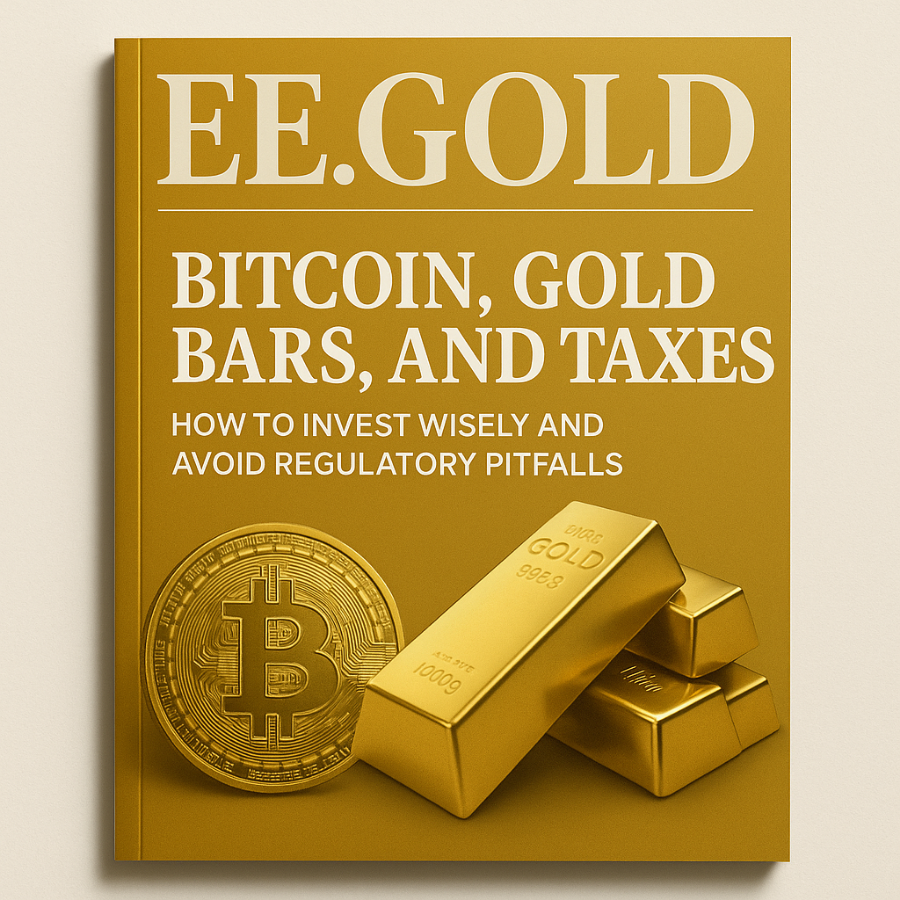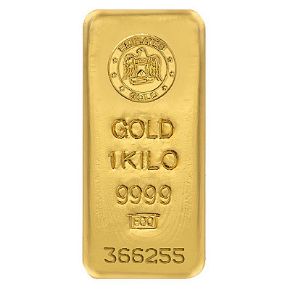
In the ever-evolving landscape of investment, individuals increasingly seek ways to diversify their portfolios beyond traditional stocks and bonds. Among the most popular alternatives are Bitcoin and gold bars, both heralded for their potential to hedge against economic uncertainty and inflation. However, investing in these assets comes with unique opportunities and challenges, particularly regarding taxation and regulatory compliance.
This comprehensive guide explores how to invest wisely in Bitcoin and gold bars, detailing strategies to maximize returns while avoiding costly regulatory pitfalls.
Investing is fundamentally about managing risk and reward. While conventional assets like stocks and real estate have long been staples, the rise of cryptocurrencies like Bitcoin and the timeless allure of gold bars present intriguing alternatives.
Bitcoin: Launched in 2009, Bitcoin is the first decentralized cryptocurrency, leveraging blockchain technology to enable peer-to-peer transactions without intermediaries.
Gold bars: For centuries, gold has symbolized wealth and security, prized for its intrinsic value and scarcity.
Both asset classes serve as potential hedges against inflation and economic instability. However, they also occupy complex regulatory environments, especially regarding taxation. Investors must be well-informed to navigate these waters safely.
Why Invest in Bitcoin and Gold Bars?
Bitcoin: Digital Gold?
Bitcoin is often referred to as “digital gold” because it shares many attributes with the precious metal:
Scarcity: Bitcoin’s supply is capped at 21 million coins.
Decentralization: No central authority controls it.
Portability: Bitcoin can be transferred quickly across borders.
Divisibility: It can be divided into tiny units called satoshis.
These features make Bitcoin attractive as a store of value and a speculative investment.
Gold Bars: Tangible Security
Gold bars offer:
Physical Tangibility: You can hold and store them.
Intrinsic Value: Historically recognized as a store of wealth.
Inflation Hedge: Gold prices often rise when fiat currencies weaken.
Diversification: They behave differently from stocks and bonds.
Understanding the Risks
No investment is without risks, and both Bitcoin and gold have their unique considerations.
Bitcoin Risks
Volatility: Bitcoin prices can fluctuate wildly within short periods.
Security: Risk of theft or loss if private keys are compromised.
Regulatory Changes: Governments are still crafting policies around cryptocurrencies, creating uncertainty.
Tax Complexity: Treatment varies by jurisdiction and transaction type.
Gold Risks
Storage and Insurance Costs: Physical gold must be stored securely.
Liquidity Concerns: Selling large quantities quickly may be challenging.
Price Fluctuations: While less volatile than Bitcoin, gold prices are not immune to market forces.
Counterfeit Risks: The market has risks of fake gold bars if not purchased from reputable dealers.
Taxation of Bitcoin and Gold Bars
One of the most critical yet complex areas for investors is taxation. Governments worldwide have different rules governing how Bitcoin and gold are taxed.
Tax Treatment of Bitcoin
The IRS (United States) and many tax authorities worldwide treat Bitcoin as property, not currency, for tax purposes. This means:
Capital Gains Tax applies on the profit when you sell or exchange Bitcoin.
Mining income is treated as ordinary income.
Payments in Bitcoin for goods or services are taxable events.
Gifts and donations involving Bitcoin may also have tax consequences.
Other countries vary—some tax Bitcoin as currency, others treat it as property, and some have ambiguous or evolving rules.
Tax Treatment of Gold Bars
Gold bars are usually classified as collectibles or investment assets.
In the U.S., selling gold bars at a profit triggers capital gains tax, often at a higher rate for collectibles (up to 28%) versus typical long-term capital gains (usually 15-20%).
VAT (Value Added Tax) or GST (Goods and Services Tax) may apply when purchasing gold in some countries.
Storing gold in foreign vaults or trusts can have additional reporting requirements.
How to Invest Wisely in Bitcoin and Gold Bars
1. Educate Yourself Thoroughly
Before investing, learn about the markets, storage options, transaction fees, and tax implications. Reliable sources include official government tax websites, reputable financial news, and investment guides.
2. Choose Reputable Platforms and Dealers
For Bitcoin, use well-established exchanges or wallets with strong security measures.
For gold bars, buy from certified dealers with transparent provenance and certification, such as the London Bullion Market Association (LBMA) or similar.
3. Understand Storage and Security
Bitcoin: Use hardware wallets or cold storage solutions to protect against hacking.
Gold Bars: Use secure vaults or safety deposit boxes; insure your holdings.
4. Keep Meticulous Records
Track every transaction, including purchases, sales, exchanges, and donations. Records should include:
Date of transaction
Amount in local currency and Bitcoin/gold units
Transaction fees
Counterparty information
This is essential for accurate tax reporting.
5. Consult Tax Professionals
Given the complexity and variability of tax laws, engage tax advisors familiar with cryptocurrency and precious metals taxation.
6. Consider the Timing of Transactions
Capital gains taxes depend on the holding period:
Short-term holdings are taxed at higher ordinary income rates.
Long-term holdings enjoy lower capital gains rates (varies by jurisdiction).
Plan transactions to optimize tax outcomes.
Regulatory Pitfalls to Avoid
1. Ignoring Reporting Requirements
Failing to report cryptocurrency gains or gold sales can result in penalties, fines, or audits. Many tax authorities have increased enforcement and cross-checking measures.
2. Using Unregulated Exchanges or Dealers
Transactions on unregulated platforms increase the risk of fraud, theft, or legal issues.
3. Overlooking Foreign Account Reporting
Holding Bitcoin or gold in foreign accounts or wallets may trigger additional reporting obligations (e.g., FBAR or FATCA in the U.S.).
4. Neglecting Anti-Money Laundering (AML) and Know Your Customer (KYC) Rules
Engaging in transactions that circumvent AML or KYC regulations can lead to criminal charges.
Case Studies and Examples
Case Study 1: Bitcoin Capital Gains
Jane bought 2 BTC at $10,000 each in January 2020. She sold them in March 2024 for $30,000 each. She incurred $500 in transaction fees.
Cost basis: $20,000
Sale proceeds: $60,000
Capital gain: $60,000 - $20,000 - $500 = $39,500
Jane must report $39,500 as a capital gain and pay tax according to her holding period and local tax rates.
Case Study 2: Gold Bar Sale
John purchased a 10 oz gold bar for $15,000 in 2018. In 2025, he sells it for $25,000. His jurisdiction treats gold as a collectible with a 28% capital gains tax rate.
Capital gain: $10,000
Tax due: $10,000 x 28% = $2,800
John needs to plan for this tax liability and keep documentation.
Strategies to Optimize Tax Efficiency
1. Use Tax-Advantaged Accounts (Where Allowed)
Some countries allow holding Bitcoin or gold in tax-advantaged retirement accounts, potentially deferring or reducing taxes.
2. Harvest Tax Losses
Offset gains by realizing losses on other investments.
3. Gift or Donate Assets
Gifting Bitcoin or gold to family members or donating to charities can reduce taxable gains and provide deductions.
4. Hold Long Term
Benefit from lower long-term capital gains rates by holding assets for over a year (or the local threshold).
Future Trends in Regulation and Investment
The regulatory landscape is dynamic:
Governments continue to clarify cryptocurrency regulations.
Some countries are considering digital currencies of their own (CBDCs), which may affect Bitcoin’s utility.
Gold trading and taxation might be influenced by geopolitical factors.
Investors should stay informed about evolving laws and technologies to adjust their strategies accordingly.
Bitcoin and gold bars each offer unique investment opportunities and risks. While both can serve as powerful tools for portfolio diversification and wealth preservation, they require careful consideration of taxation and regulatory compliance.
Wise investors educate themselves thoroughly, use reputable platforms, keep accurate records, and consult professionals to avoid pitfalls and maximize benefits. With prudent strategies, investing in Bitcoin and gold bars can be a rewarding component of a well-rounded financial plan.
NOTE
This Content is the copyrighted content of EE.GOLD. All rights are reserved. You are welcome to share or use our content only by including direct links to our website. Any other form of reproduction, distribution, or use without proper attribution is strictly prohibited.
This Content is intended solely for educational purposes. The information provided does not constitute financial or investment advice.
Please note that Digital Storage Receipt, Secure Storage Solutions, and Physical Gold Sales are the only services offered by EE.GOLD.
We strictly adhere to government regulations and are firmly against all illegal financial or investment activities globally.
For further inquiries, feel free to contact us through our official channels.










.png)

